-

May
26
Farmer’s request for extension to SEC proposed rule granted

The Enhancement and Standardization of Climate-Related Disclosures for Investors, a proposed rule by the United States Securities and Exchange Commission (SEC), would require registrants to provide certain climate-related information in their registration statements and annual reports.
Read more
-

May
26
“Big Four” meatpacker CEOs testify in front of congress
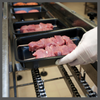
The top executives of the four biggest meatpacking companies in the United States faced lawmakers on Capitol Hill, regarding anti-competitive accusations. This is the first time any of the executives provided congressional testimony since the president and some lawmakers accused the companies of unfairly hiking meat prices.
Read more
-

May
19
Interpretive Summary: The effects of creep feed composition and form and nursery diet complexity on small intestinal morphology and jejunal mucosa-specific enzyme activities after weaning in pigs
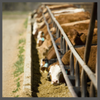
After weaning, the piglet digestive tract must adapt in order to effectively break down and absorb nutrients derived from plant-based ingredients, contributing to the postweaning growth lag.
Read more
-

May
19
Interpretive Summary: Coated tannin supplementation improves growth performance, nutrients digestibility, and intestinal function in weaned piglets
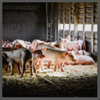
Studies in recent years have shown that tannic acid has various biological functions such as astringency, anti-inflammatory effect, and anti-oxidation property, which has good potential to improve diarrhea and intestinal health of animals.
Read more
-

May
19
Interpretive Summary: Effects of ferulic acid on the growth performance, antioxidant capacity, and intestinal development of piglets with intrauterine growth retardation
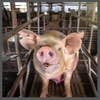
Intrauterine growth retardation (IUGR) impairs postnatal growth and development in neonatal piglets. Ferulic acid (FA) is a ubiquitous phenolic compound that is present in numerous fruits and vegetables and possesses various biological activities.
Read more
-

May
19
Interpretive Summary: Identification of functional single nucleotide polymorphisms in the porcine SLC6A4 gene associated with aggressive behavior in weaned pigs after mixing
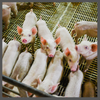
The current study identified the functional single nucleotide polymorphisms for the porcine SLC6A4 (serotonin transporter) gene associated with aggressive behavior of pigs after mixing.
Read more
-

May
19
Interpretive Summary: Effect of chemical and biological preservatives and ensiling stage on the dry matter loss, nutritional value, microbial counts, and ruminal in vitro gas production kinetics of wet brewer’s grain silage
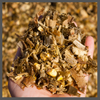
Wet brewer’s grain (WBG) is the most abundant byproduct in the manufacture of beer and its rich nutritional composition makes it a valuable feed for cattle. However, WBG is highly susceptible to spoilage so the application of cost-effective preservatives may be a viable approach to prevent nutrient losses during ensiling and feed out.
Read more
-

May
19
Interpretive Summary: Dietary supplementation with lysine (protein) stimulates mammary development in late pregnant gilts
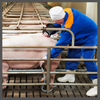
Results indicate that the current National Research Council recommendations for dietary lysine during late pregnancy in pigs, the period when most mammary gland development takes place, are underestimated.
Read more
-

May
19
Interpretive Summary: Protective effect and possible mechanism of arctiin on broilers challenged by Salmonella pullorum
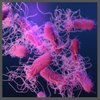
Pullorosis caused by Salmonella pullorum (S. pullorum) is a severe contagious disease and could cause great economic loss to the poultry industry. Antibiotics are usually used to control pullorosis, while prolonged use of antibiotics has led to the emergence of multidrug-resistant bacterial strains
Read more
-

May
19
Interpretive Summary: A risk-oriented evaluation of biofilm and other influencing factors on biological quality of drinking water for dairy cows
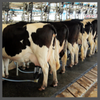
This study aimed to evaluate biological water quality on Western German dairy farms, identify potential risk factors for impairment, and evaluate rapid test systems to score the hygienic status of troughs.
Read more
-

May
19
Interpretive Summary: Is single-step genGrowth performance, bone mineralization, nutrient digestibility, and fecal microbial composition of multi-enzyme-supplemented low-nutrient diets for growing-finishing pigs
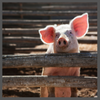
A study evaluated the effects of supplementing a multi-enzyme mixture that contain fiber degrading enzymes and phytase on the growth performance, bone strength, and fecal microbial composition of grow-finish pigs fed corn-wheat-wheat bran-based diets.
Read more
-

May
19
Interpretive Summary: Is single-step genomic REML with the algorithm for proven and young more computationally efficient when less generations of data are present?
.png?sfvrsn=d1054dd1_0)
The estimation of variance components is computationally expensive under large-scale genetic evaluations due to several inversions of the coefficient matrix. Variance components are used as parameters for estimating breeding values in mixed model equations (MME).
Read more
-

May
12
Interpretive Summary: Supplementation of live yeast culture modulates intestinal health, immune responses, and microbiota diversity in broiler chickens
.png?sfvrsn=3bf84dd1_0)
Live yeast culture (LYC) is composed of Saccharomyces cerevisiae and its metabolites such as mannan-oligosaccharides, peptides, nucleotides, vitamins and unknown growth factors. The supplementation of LYC is expected to exert health benefits in animals; however, the responses of broiler chickens to supplemental LYC is not fully explored.
Read more
-

May
12
Interpretive Summary: Mineral-salt supplementation to ameliorate larkspur poisoning in cattle
.png?sfvrsn=12f84dd1_0)
Larkspurs (Delphinium spp.) are native forbs poisonous to cattle and cost livestock producers millions of dollars in losses each year. The role mineral status may play in larkspur poisoning in cattle is unclear.
Read more
-

May
12
Interpretive Summary: Elliptical and linear relationships with rumen temperature support a homeorhetic trajectory for DMI during recovery of feedlot cattle exposed to moderate heat load

Over any summer, most feedlot steers in Australia will encounter 2 to 3 moderate heat waves lasting 5 to 6 d. The ability of these animals to adjust to the hot conditions and recovery from them is not well understood.
Read more
-

May
12
Interpretive Summary: Functional roles of xylanase enhancing intestinal health and growth performance of nursery pigs by reducing the digesta viscosity and modulating the mucosa-associated microbiota in the jejunum
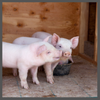
Cereal grains and by-products from cereal processing are extensively used in diets for pigs. These feedstuffs contain soluble fiber that makes digesta viscous in the small intestine.
Read more
-

May
12
Interpretive Summary: A risk-oriented evaluation of bioflm and other influencing factors on biological quality of drinking water for dairy cows
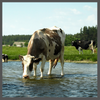
This study aimed to evaluate biological water quality on Western German dairy farms, identify potential risk factors for impairment, and evaluate rapid test systems to score the hygienic status of troughs.
Read more
-

May
12
Interpretive Summary: The energy requirement for maintenance of Nellore crossbreds in tropical conditions during the finishing period
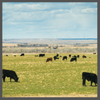
This study evaluated the influence of purebred Nellore and its crosses with Simmental, Angus, and Canchim slaughtered at the same age and body composition on their net energy requirement for maintenance (NEm).
Read more
-

May
12
Interpretive Summary: Effect of fermented corn by-products on production performance, blood biochemistry, and egg quality indices of laying hens
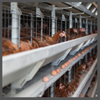
Feed costs the major portion of poultry industry which is estimated to be 60% to 70%. The current study focused to add the fermented agro-industrial by product most of which were waste residues to the laying hen’s diet.
Read more
-

May
05
Interpretive Summary: Functional properties of miscanthus fiber and prebiotic blends in extruded canine diets

There are many ingredients utilized in dog foods that provide a source of dietary fiber. However, new ingredient sources can help to add variety to diet formulas and may provide benefits to pet food processing and animal health.
Read more
 MayFarmer’s request for extension to SEC proposed rule granted
MayFarmer’s request for extension to SEC proposed rule granted The Enhancement and Standardization of Climate-Related Disclosures for Investors, a proposed rule by the United States Securities and Exchange Commission (SEC), would require registrants to provide certain climate-related information in their registration statements and annual reports.
The Enhancement and Standardization of Climate-Related Disclosures for Investors, a proposed rule by the United States Securities and Exchange Commission (SEC), would require registrants to provide certain climate-related information in their registration statements and annual reports. May“Big Four” meatpacker CEOs testify in front of congress
May“Big Four” meatpacker CEOs testify in front of congress The top executives of the four biggest meatpacking companies in the United States faced lawmakers on Capitol Hill, regarding anti-competitive accusations. This is the first time any of the executives provided congressional testimony since the president and some lawmakers accused the companies of unfairly hiking meat prices.
The top executives of the four biggest meatpacking companies in the United States faced lawmakers on Capitol Hill, regarding anti-competitive accusations. This is the first time any of the executives provided congressional testimony since the president and some lawmakers accused the companies of unfairly hiking meat prices. MayInterpretive Summary: The effects of creep feed composition and form and nursery diet complexity on small intestinal morphology and jejunal mucosa-specific enzyme activities after weaning in pigs
MayInterpretive Summary: The effects of creep feed composition and form and nursery diet complexity on small intestinal morphology and jejunal mucosa-specific enzyme activities after weaning in pigs After weaning, the piglet digestive tract must adapt in order to effectively break down and absorb nutrients derived from plant-based ingredients, contributing to the postweaning growth lag.
After weaning, the piglet digestive tract must adapt in order to effectively break down and absorb nutrients derived from plant-based ingredients, contributing to the postweaning growth lag. MayInterpretive Summary: Coated tannin supplementation improves growth performance, nutrients digestibility, and intestinal function in weaned piglets
MayInterpretive Summary: Coated tannin supplementation improves growth performance, nutrients digestibility, and intestinal function in weaned piglets Studies in recent years have shown that tannic acid has various biological functions such as astringency, anti-inflammatory effect, and anti-oxidation property, which has good potential to improve diarrhea and intestinal health of animals.
Studies in recent years have shown that tannic acid has various biological functions such as astringency, anti-inflammatory effect, and anti-oxidation property, which has good potential to improve diarrhea and intestinal health of animals. MayInterpretive Summary: Effects of ferulic acid on the growth performance, antioxidant capacity, and intestinal development of piglets with intrauterine growth retardation
MayInterpretive Summary: Effects of ferulic acid on the growth performance, antioxidant capacity, and intestinal development of piglets with intrauterine growth retardation Intrauterine growth retardation (IUGR) impairs postnatal growth and development in neonatal piglets. Ferulic acid (FA) is a ubiquitous phenolic compound that is present in numerous fruits and vegetables and possesses various biological activities.
Intrauterine growth retardation (IUGR) impairs postnatal growth and development in neonatal piglets. Ferulic acid (FA) is a ubiquitous phenolic compound that is present in numerous fruits and vegetables and possesses various biological activities. MayInterpretive Summary: Identification of functional single nucleotide polymorphisms in the porcine SLC6A4 gene associated with aggressive behavior in weaned pigs after mixing
MayInterpretive Summary: Identification of functional single nucleotide polymorphisms in the porcine SLC6A4 gene associated with aggressive behavior in weaned pigs after mixing The current study identified the functional single nucleotide polymorphisms for the porcine SLC6A4 (serotonin transporter) gene associated with aggressive behavior of pigs after mixing.
The current study identified the functional single nucleotide polymorphisms for the porcine SLC6A4 (serotonin transporter) gene associated with aggressive behavior of pigs after mixing. MayInterpretive Summary: Effect of chemical and biological preservatives and ensiling stage on the dry matter loss, nutritional value, microbial counts, and ruminal in vitro gas production kinetics of wet brewer’s grain silage
MayInterpretive Summary: Effect of chemical and biological preservatives and ensiling stage on the dry matter loss, nutritional value, microbial counts, and ruminal in vitro gas production kinetics of wet brewer’s grain silage Wet brewer’s grain (WBG) is the most abundant byproduct in the manufacture of beer and its rich nutritional composition makes it a valuable feed for cattle. However, WBG is highly susceptible to spoilage so the application of cost-effective preservatives may be a viable approach to prevent nutrient losses during ensiling and feed out.
Wet brewer’s grain (WBG) is the most abundant byproduct in the manufacture of beer and its rich nutritional composition makes it a valuable feed for cattle. However, WBG is highly susceptible to spoilage so the application of cost-effective preservatives may be a viable approach to prevent nutrient losses during ensiling and feed out. MayInterpretive Summary: Dietary supplementation with lysine (protein) stimulates mammary development in late pregnant gilts
MayInterpretive Summary: Dietary supplementation with lysine (protein) stimulates mammary development in late pregnant gilts Results indicate that the current National Research Council recommendations for dietary lysine during late pregnancy in pigs, the period when most mammary gland development takes place, are underestimated.
Results indicate that the current National Research Council recommendations for dietary lysine during late pregnancy in pigs, the period when most mammary gland development takes place, are underestimated. MayInterpretive Summary: Protective effect and possible mechanism of arctiin on broilers challenged by Salmonella pullorum
MayInterpretive Summary: Protective effect and possible mechanism of arctiin on broilers challenged by Salmonella pullorum Pullorosis caused by Salmonella pullorum (S. pullorum) is a severe contagious disease and could cause great economic loss to the poultry industry. Antibiotics are usually used to control pullorosis, while prolonged use of antibiotics has led to the emergence of multidrug-resistant bacterial strains
Pullorosis caused by Salmonella pullorum (S. pullorum) is a severe contagious disease and could cause great economic loss to the poultry industry. Antibiotics are usually used to control pullorosis, while prolonged use of antibiotics has led to the emergence of multidrug-resistant bacterial strains MayInterpretive Summary: A risk-oriented evaluation of biofilm and other influencing factors on biological quality of drinking water for dairy cows
MayInterpretive Summary: A risk-oriented evaluation of biofilm and other influencing factors on biological quality of drinking water for dairy cows This study aimed to evaluate biological water quality on Western German dairy farms, identify potential risk factors for impairment, and evaluate rapid test systems to score the hygienic status of troughs.
This study aimed to evaluate biological water quality on Western German dairy farms, identify potential risk factors for impairment, and evaluate rapid test systems to score the hygienic status of troughs. MayInterpretive Summary: Is single-step genGrowth performance, bone mineralization, nutrient digestibility, and fecal microbial composition of multi-enzyme-supplemented low-nutrient diets for growing-finishing pigs
MayInterpretive Summary: Is single-step genGrowth performance, bone mineralization, nutrient digestibility, and fecal microbial composition of multi-enzyme-supplemented low-nutrient diets for growing-finishing pigs A study evaluated the effects of supplementing a multi-enzyme mixture that contain fiber degrading enzymes and phytase on the growth performance, bone strength, and fecal microbial composition of grow-finish pigs fed corn-wheat-wheat bran-based diets.
A study evaluated the effects of supplementing a multi-enzyme mixture that contain fiber degrading enzymes and phytase on the growth performance, bone strength, and fecal microbial composition of grow-finish pigs fed corn-wheat-wheat bran-based diets. MayInterpretive Summary: Is single-step genomic REML with the algorithm for proven and young more computationally efficient when less generations of data are present?
MayInterpretive Summary: Is single-step genomic REML with the algorithm for proven and young more computationally efficient when less generations of data are present?.png?sfvrsn=d1054dd1_0) The estimation of variance components is computationally expensive under large-scale genetic evaluations due to several inversions of the coefficient matrix. Variance components are used as parameters for estimating breeding values in mixed model equations (MME).
The estimation of variance components is computationally expensive under large-scale genetic evaluations due to several inversions of the coefficient matrix. Variance components are used as parameters for estimating breeding values in mixed model equations (MME). MayInterpretive Summary: Supplementation of live yeast culture modulates intestinal health, immune responses, and microbiota diversity in broiler chickens
MayInterpretive Summary: Supplementation of live yeast culture modulates intestinal health, immune responses, and microbiota diversity in broiler chickens.png?sfvrsn=3bf84dd1_0) Live yeast culture (LYC) is composed of Saccharomyces cerevisiae and its metabolites such as mannan-oligosaccharides, peptides, nucleotides, vitamins and unknown growth factors. The supplementation of LYC is expected to exert health benefits in animals; however, the responses of broiler chickens to supplemental LYC is not fully explored.
Live yeast culture (LYC) is composed of Saccharomyces cerevisiae and its metabolites such as mannan-oligosaccharides, peptides, nucleotides, vitamins and unknown growth factors. The supplementation of LYC is expected to exert health benefits in animals; however, the responses of broiler chickens to supplemental LYC is not fully explored. MayInterpretive Summary: Mineral-salt supplementation to ameliorate larkspur poisoning in cattle
MayInterpretive Summary: Mineral-salt supplementation to ameliorate larkspur poisoning in cattle.png?sfvrsn=12f84dd1_0) Larkspurs (Delphinium spp.) are native forbs poisonous to cattle and cost livestock producers millions of dollars in losses each year. The role mineral status may play in larkspur poisoning in cattle is unclear.
Larkspurs (Delphinium spp.) are native forbs poisonous to cattle and cost livestock producers millions of dollars in losses each year. The role mineral status may play in larkspur poisoning in cattle is unclear. MayInterpretive Summary: Elliptical and linear relationships with rumen temperature support a homeorhetic trajectory for DMI during recovery of feedlot cattle exposed to moderate heat load
MayInterpretive Summary: Elliptical and linear relationships with rumen temperature support a homeorhetic trajectory for DMI during recovery of feedlot cattle exposed to moderate heat load Over any summer, most feedlot steers in Australia will encounter 2 to 3 moderate heat waves lasting 5 to 6 d. The ability of these animals to adjust to the hot conditions and recovery from them is not well understood.
Over any summer, most feedlot steers in Australia will encounter 2 to 3 moderate heat waves lasting 5 to 6 d. The ability of these animals to adjust to the hot conditions and recovery from them is not well understood. MayInterpretive Summary: Functional roles of xylanase enhancing intestinal health and growth performance of nursery pigs by reducing the digesta viscosity and modulating the mucosa-associated microbiota in the jejunum
MayInterpretive Summary: Functional roles of xylanase enhancing intestinal health and growth performance of nursery pigs by reducing the digesta viscosity and modulating the mucosa-associated microbiota in the jejunum Cereal grains and by-products from cereal processing are extensively used in diets for pigs. These feedstuffs contain soluble fiber that makes digesta viscous in the small intestine.
Cereal grains and by-products from cereal processing are extensively used in diets for pigs. These feedstuffs contain soluble fiber that makes digesta viscous in the small intestine. MayInterpretive Summary: A risk-oriented evaluation of bioflm and other influencing factors on biological quality of drinking water for dairy cows
MayInterpretive Summary: A risk-oriented evaluation of bioflm and other influencing factors on biological quality of drinking water for dairy cows This study aimed to evaluate biological water quality on Western German dairy farms, identify potential risk factors for impairment, and evaluate rapid test systems to score the hygienic status of troughs.
This study aimed to evaluate biological water quality on Western German dairy farms, identify potential risk factors for impairment, and evaluate rapid test systems to score the hygienic status of troughs. MayInterpretive Summary: The energy requirement for maintenance of Nellore crossbreds in tropical conditions during the finishing period
MayInterpretive Summary: The energy requirement for maintenance of Nellore crossbreds in tropical conditions during the finishing period This study evaluated the influence of purebred Nellore and its crosses with Simmental, Angus, and Canchim slaughtered at the same age and body composition on their net energy requirement for maintenance (NEm).
This study evaluated the influence of purebred Nellore and its crosses with Simmental, Angus, and Canchim slaughtered at the same age and body composition on their net energy requirement for maintenance (NEm). MayInterpretive Summary: Effect of fermented corn by-products on production performance, blood biochemistry, and egg quality indices of laying hens
MayInterpretive Summary: Effect of fermented corn by-products on production performance, blood biochemistry, and egg quality indices of laying hens Feed costs the major portion of poultry industry which is estimated to be 60% to 70%. The current study focused to add the fermented agro-industrial by product most of which were waste residues to the laying hen’s diet.
Feed costs the major portion of poultry industry which is estimated to be 60% to 70%. The current study focused to add the fermented agro-industrial by product most of which were waste residues to the laying hen’s diet. MayInterpretive Summary: Functional properties of miscanthus fiber and prebiotic blends in extruded canine diets
MayInterpretive Summary: Functional properties of miscanthus fiber and prebiotic blends in extruded canine diets There are many ingredients utilized in dog foods that provide a source of dietary fiber. However, new ingredient sources can help to add variety to diet formulas and may provide benefits to pet food processing and animal health.
There are many ingredients utilized in dog foods that provide a source of dietary fiber. However, new ingredient sources can help to add variety to diet formulas and may provide benefits to pet food processing and animal health.



